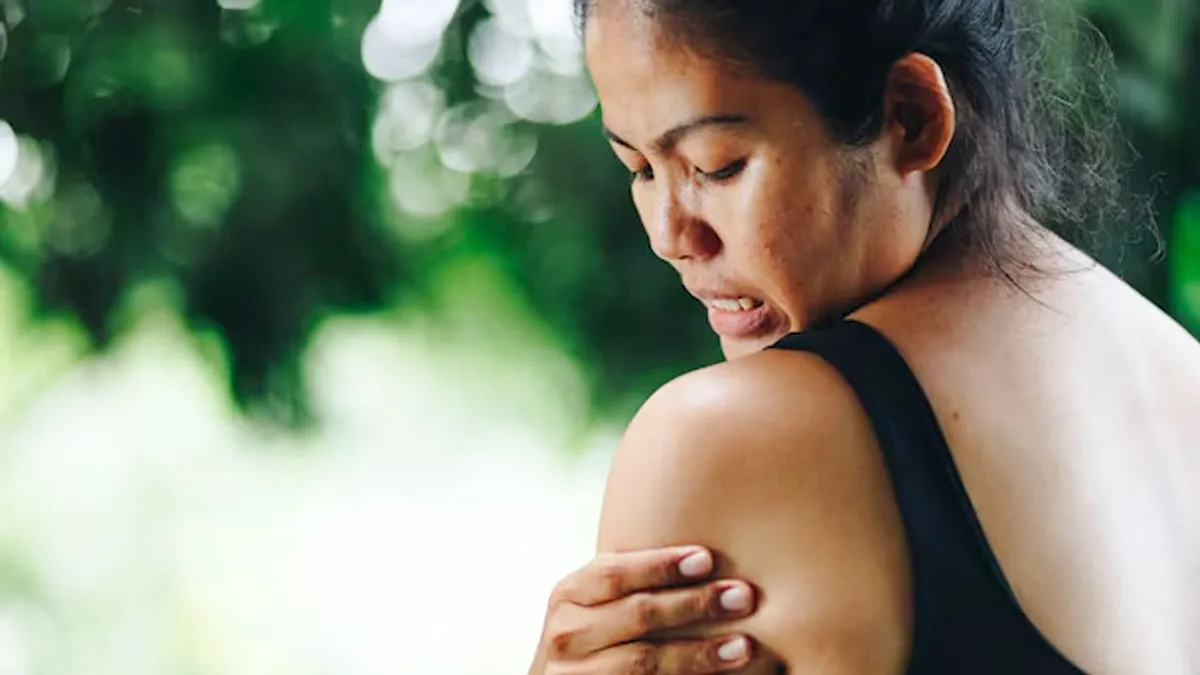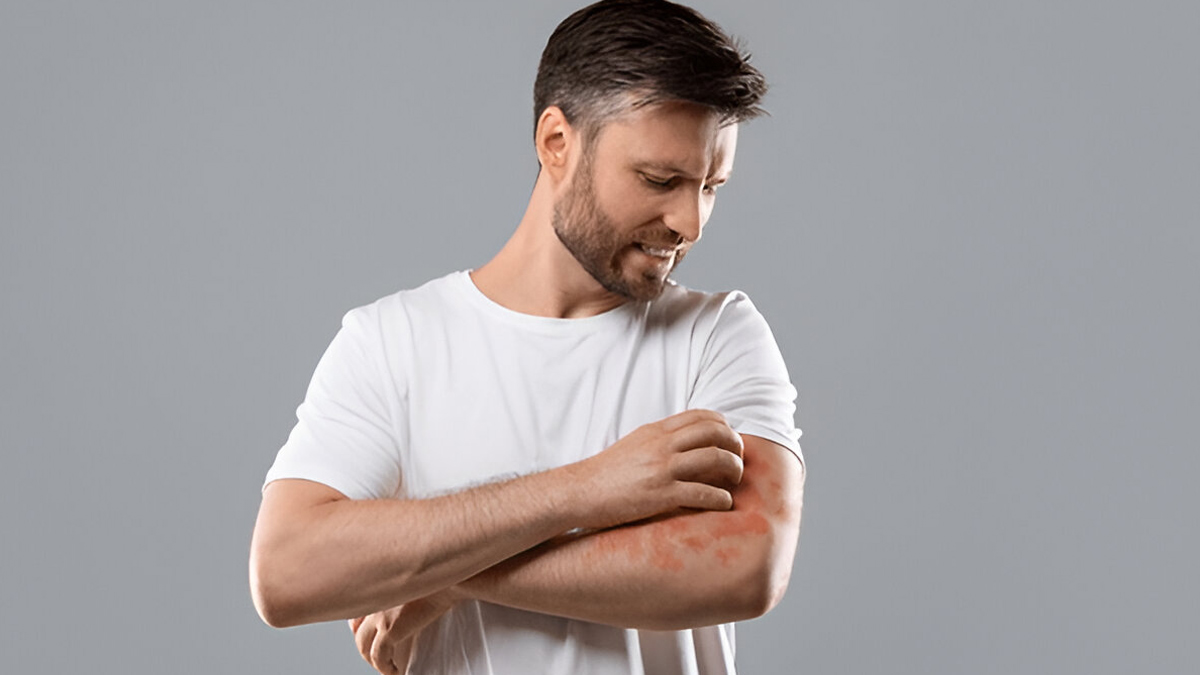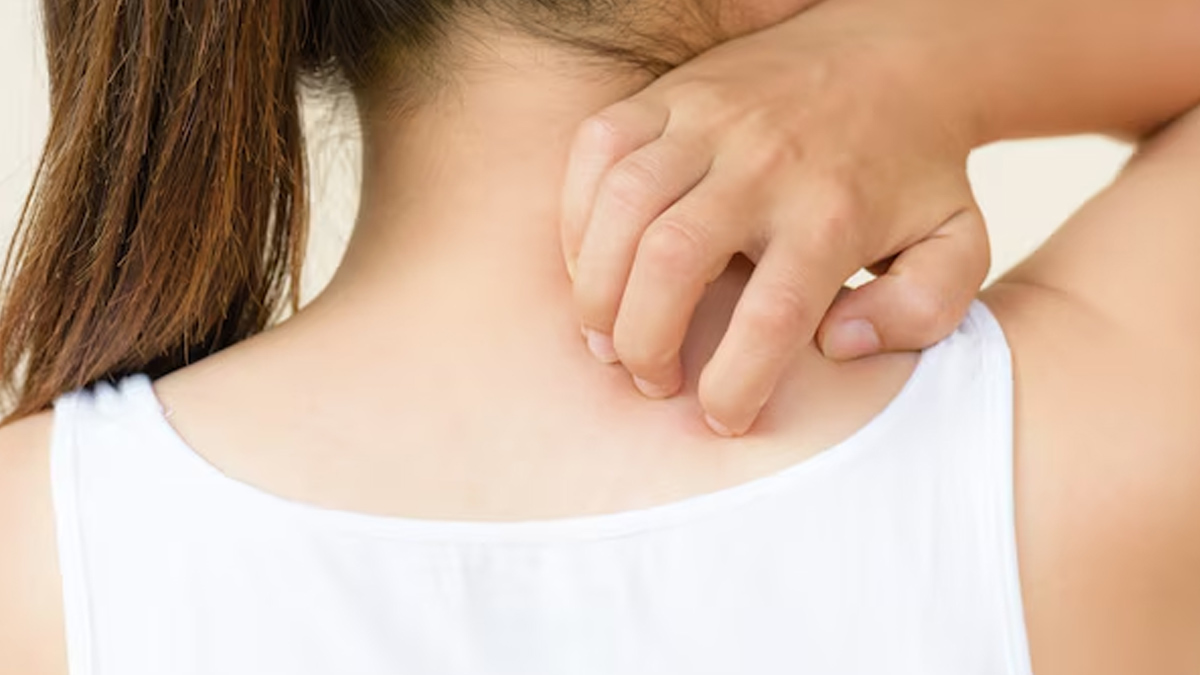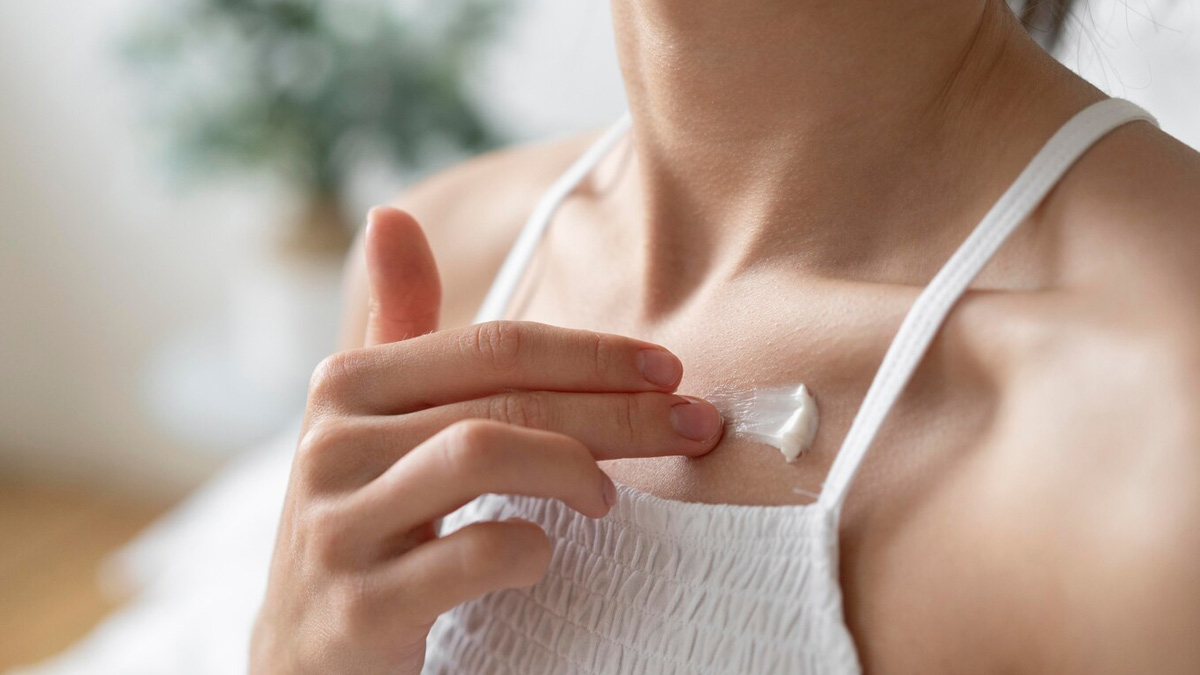
Have you ever changed out of sweaty gym wear, taken a quick break, and then slipped that same damp T-shirt back on, only to feel your skin crawl with itchiness a few minutes later? Or maybe you got caught in a sudden downpour, sat in damp jeans for a while, and ended up scratching your legs like crazy afterwards. This itching is common, especially during humid monsoons or after workouts. But what's happening to your skin, and how can you stop it?
Table of Content:-
Why Do Damp Clothes Cause Itching?
1. Trapped Moisture = Fungal Playground

Damp clothing, especially in warm and humid environments, creates a perfect breeding ground for fungus and bacteria. When body heat and sweat combine with wet clothes, organisms like Candida can multiply rapidly. This can lead to uncomfortable fungal infections, such as tinea or candidiasis, often appearing as red, itchy rashes in areas like the underarms, inner thighs, or under the breasts.
2. Irritated Skin Barrier
Your skin has a natural barrier that keeps moisture in and keeps out irritants. But after repeated exposure to moisture, most often from sweaty clothes, this barrier is washed away. The skin then dries, becomes irritated and inflamed, and becomes more sensitive to clothing friction or clothing allergens.
3. Chemical Residues in Fabric
You may be exposed to leftover detergent, fabric softener, or bleach when wearing wet clothes, especially right after you wash them. When your skin is irritated by these substances, it develops a condition called contact dermatitis, which causes a red, itchy rash.
4. Miliaria (Heat Rash)
When your sweat glands get blocked, especially if you are wearing wet clothes, you might get heat rash, also known as miliaria. This shows up as small red bumps and can be really itchy, especially in hot and humid weather.
Also Read: Why You Get Itchy After A Shower And What Is Your Body Telling You?
Common Areas That Get Affected
You may experience frequent itching in these areas:

- Back and chest
- Underarms
- Waistline
- Behind the knees
- Inner thighs
- Under the breasts
These are areas where damp fabric tends to cling the most and where sweat tends to accumulate.
How to Prevent and Fix Itchy Skin from Damp Clothes

Change Out of Wet Clothes
Don't sit around in wet clothes, whether it's sweat, rain, or pool water. You are more likely to experience reactions to moisture and friction if your skin is exposed for an extended period.
Pat, Don’t Rub, to Dry Your Skin
Dry your skin gently with a clean towel after changing. Make sure not to rub your skin too harshly, especially if it is already irritated.
Keep Anti-Fungal Powder Handy
The use of antifungal powder on commonly affected areas can prevent fungal growth, especially if you are sweaty or live in a humid climate.
Opt for Breathable, Quick-Dry Fabrics
Keep your skin dry by wearing cotton, bamboo, or moisture-wicking materials instead of artificial materials that retain moisture.
Rinse Clothes Thoroughly
Ensure any detergent and softener residue is thoroughly rinsed. Double-rinse if necessary, particularly if you have sensitive skin.
Moisturise With Care
Some people may develop itchiness after showering. To combat this, use a light, unscented moisturiser. Avoid strongly scented lotions or ointments that could make the itch worse.
Cool the Area
Applying a cold compress to itchy areas can soothe inflammation and reduce the urge to scratch.
Also Read: Can Itchy Skin Be A Sign Of Cancer? Here's What Doctor Has To Say
When to See a Doctor
While occasional itchiness from damp clothes is nothing to panic about, persistent symptoms like:
- Peeling or cracked skin
- Red or scaly rashes
- Intense itching that interferes with sleep
- Or oozing lesions
It is recommended to consult a dermatologist if you notice these signs, as it may be an indication of an underlying condition, such as eczema, dermatitis, or fungal infection. The healthcare expert may suggest topical drugs or antihistamines based on the cause.
[Disclaimer: This article contains information for informational purposes only. Hence, we advise you to consult your professional if you are dealing with any health issue to avoid complications.]
Also watch this video
How we keep this article up to date:
We work with experts and keep a close eye on the latest in health and wellness. Whenever there is a new research or helpful information, we update our articles with accurate and useful advice.
Current Version